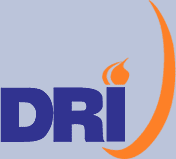 |
Disability |
|
|
• Home(1)
|
Child SSI Program ParticipationPrincipal Investigators: Tanya Gallagher and Judith Richardson Project Type: Core Research Project Year: 05 Thematic Category: Transition to Work Project Summary: Children who are eligible for SSI also qualify for other publicly funded programs. Two of the largest of these are special education and Medicaid. Although children may participate in both of these program prior to or concurrent with receiving SSI benefits, there is some indication that some SSI children may not be taking advantage of the resources for which they may be eligible. Cross-program participation and eligibility requirements, as well as community resources available to families, including government agencies’ outreach and administration of these programs, are all important components for understanding non-participation of eligible families. Families’ knowledge, experience, and perceptions of the available programs, and their access to and understanding of the information provided about the programs need to be investigated further. It is also important to learn more about the knowledge, experience, and perceptions of program representatives and community organizations serving families with disabilities regarding these programs. The proposed project will investigate the patterns of children’s participation in SSI, special education, and Medicaid programs in two sites: Washington, DC (alternative Montgomery County, Maryland) and Hawaii and identify factors that may be contributing to differences in SSI children’s concurrent program participation levels. Investigating the connections between programs is an important step toward understanding how the system of programs actually works for families, and toward identifying ways in which program implementation, both formal and informal, might need to be altered in order to be better aligned with program goals. |
|
|
|
|
|